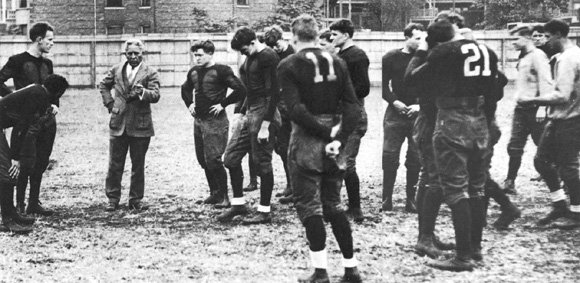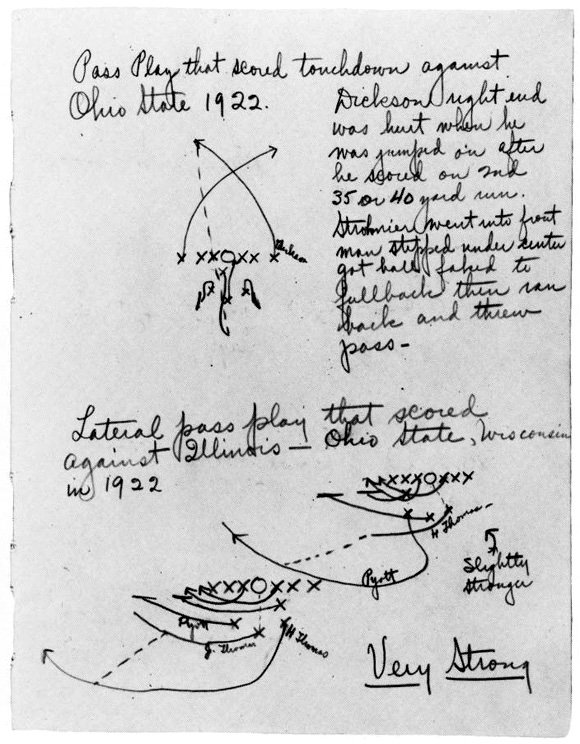Amos Alonzo Stagg (1862-1965): Physical Culture and Athletics
A star football and baseball player at Yale, Stagg quickly gained a favorable reputation in the growing arena of intercollegiate amateur athletics. While coaching teams at the YMCA College in Springfield, Massachusetts, Stagg forged a bond between sports and religious faith that remained important to him for the rest of his life. Asked by William Rainey Harper in 1890 to head the Department of Physical Culture and Athletics, Stagg was quickly reassured about the role of sports in the coming university. Harper promised Stagg that the teams under his direction at the University of Chicago would be sent around the country to "knock out all the colleges."
While at Chicago, Stagg oversaw creation of several athletic facilities, supervising details of Bartlett Gymnasium's construction to tailor the building to his and the University's needs. Gridiron success brought increased weekend football crowds and resulted in the erection of Stagg field, a stadium named in his honor.
Stagg-coached teams gained national fame. University of Chicago football teams dominated the Big Ten conference through the midtwenties, winning seven titles by 1924. Football was not the only sport at Chicago, however. University tennis, track, and baseball teams, though less well-known, all fell under Stagg's control.
During his long tenure at the University of Chicago, Stagg demonstrated a deep concern for much more than just the physical achievements of his athletes. Athletics and winning were only two aspects of a philosophy that integrated the physical, mental, and spiritual dimensions of life. For Stagg, every act reflected on the individual actor. He believed that lives could be shaped positively by proper surroundings and influences. His religious beliefs went deeper than most; for Stagg, being "spiritually ready" was as essential for the successful athlete as physical preparedness.


